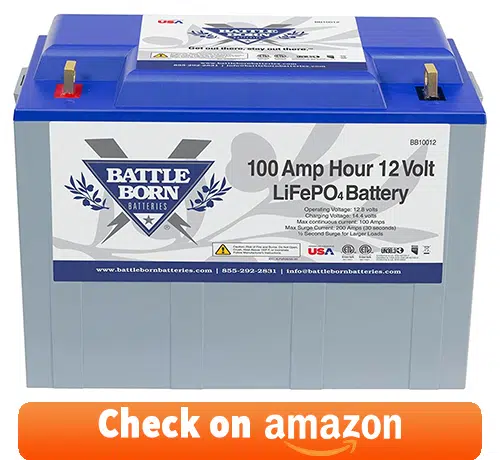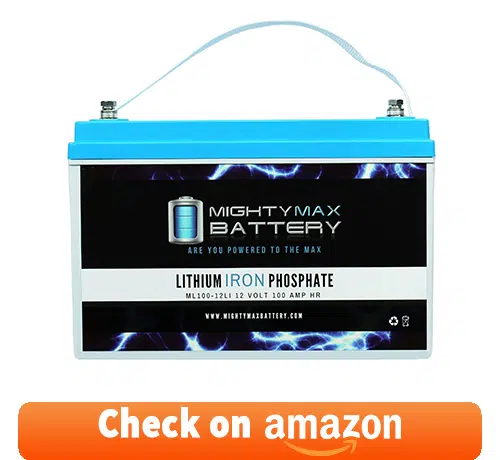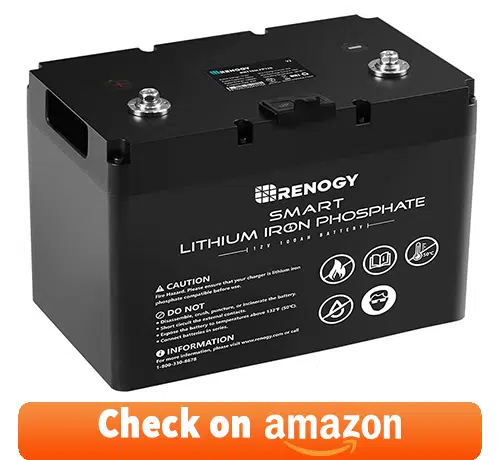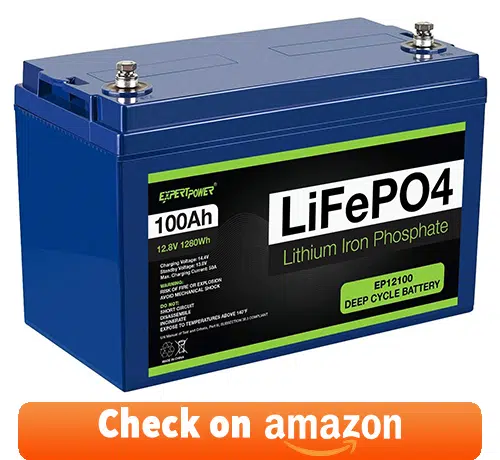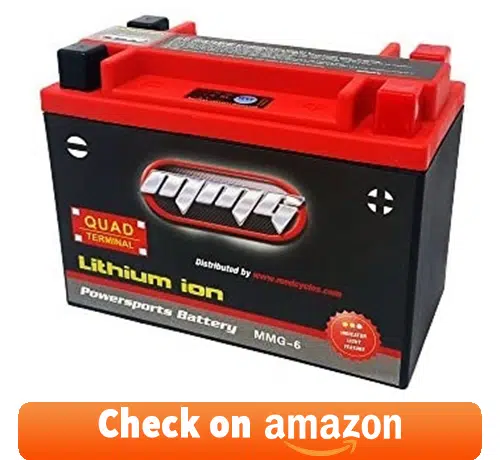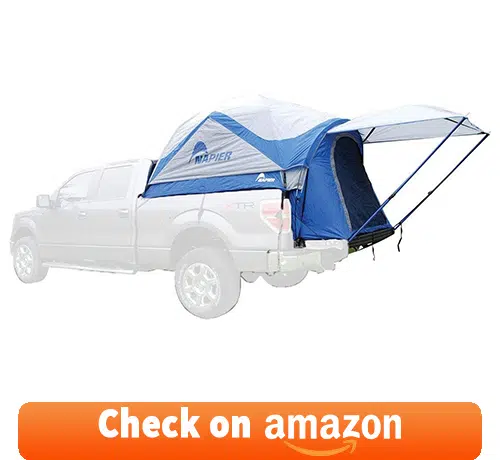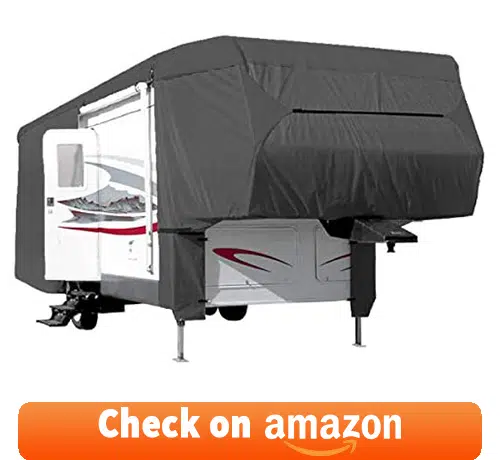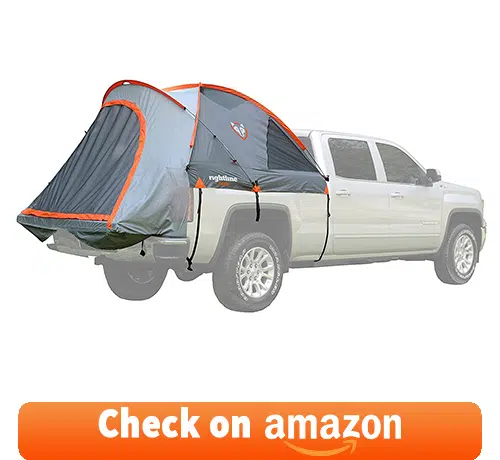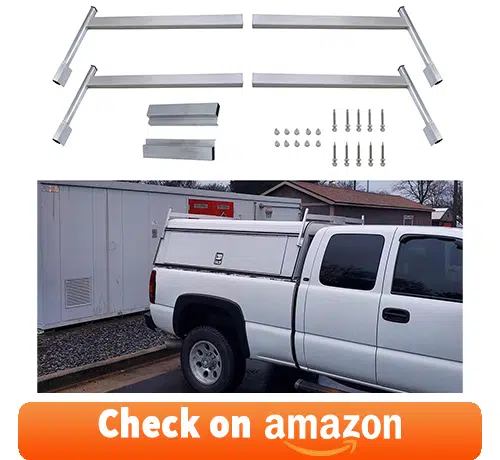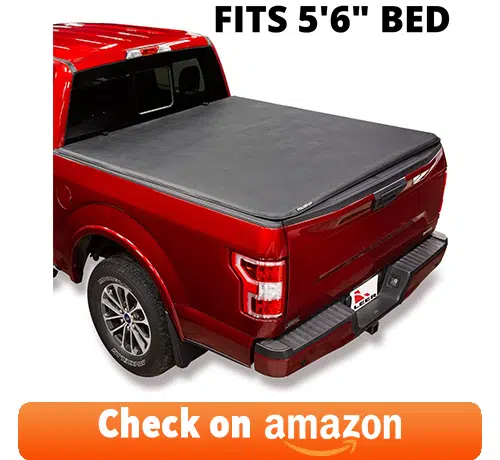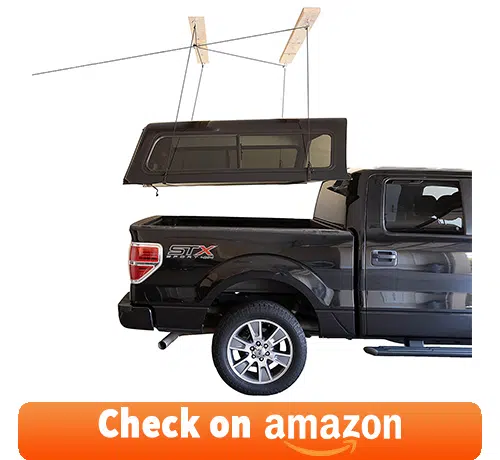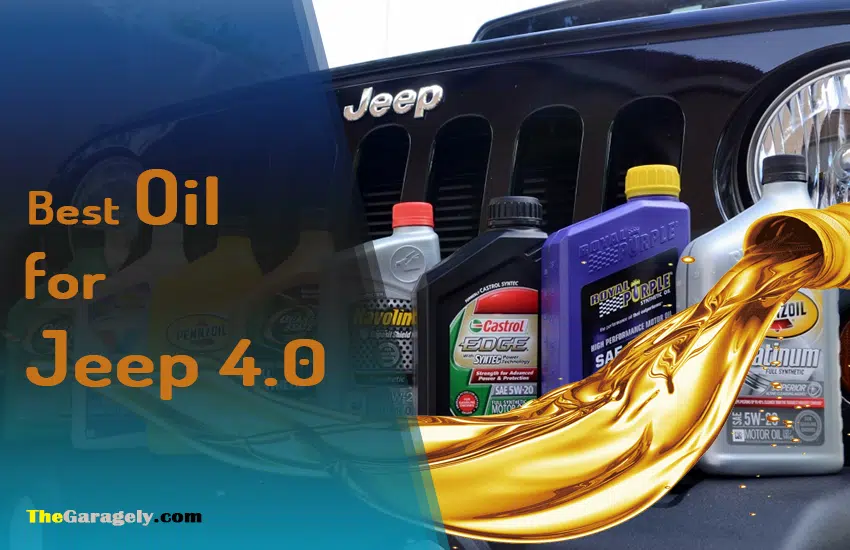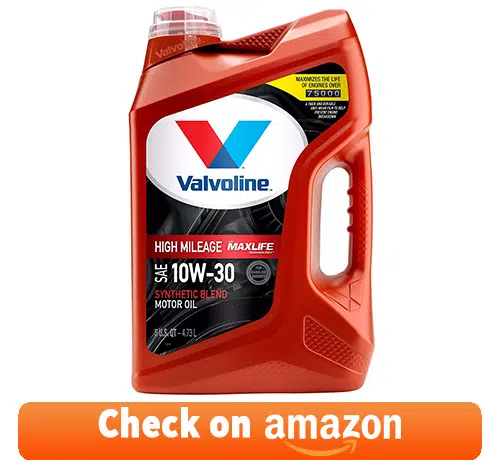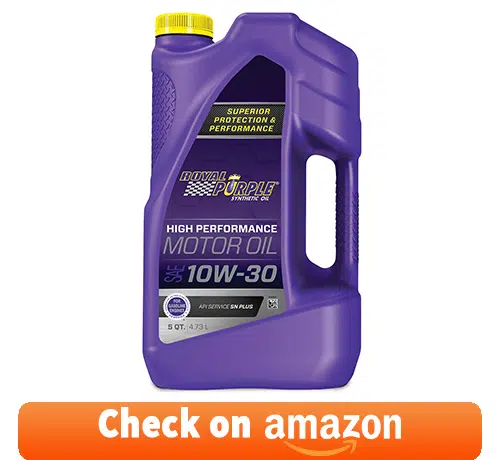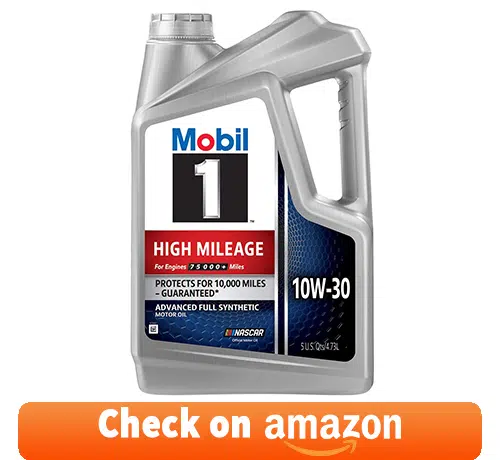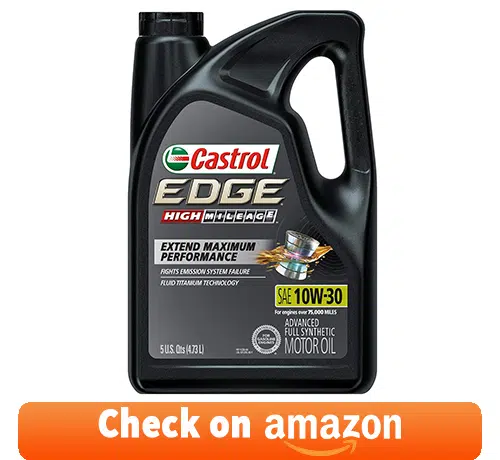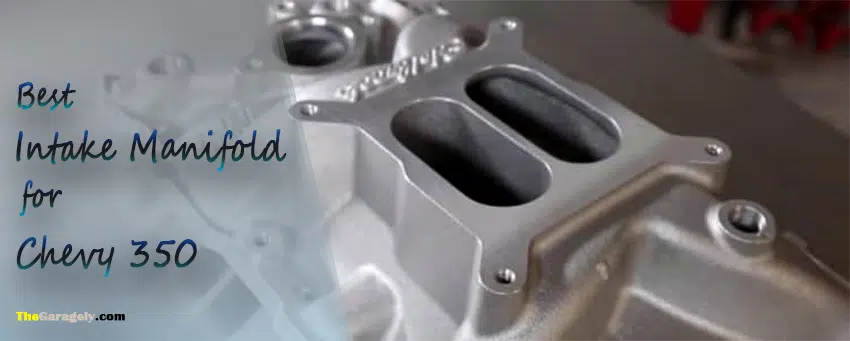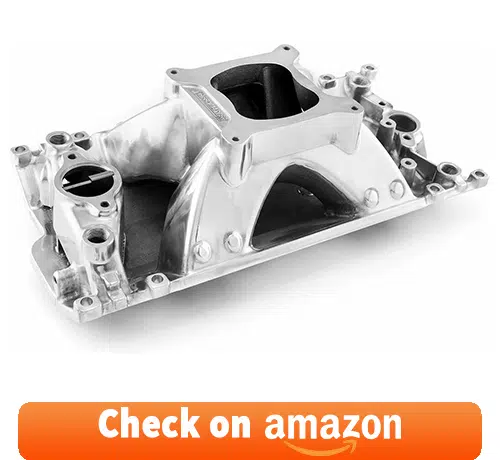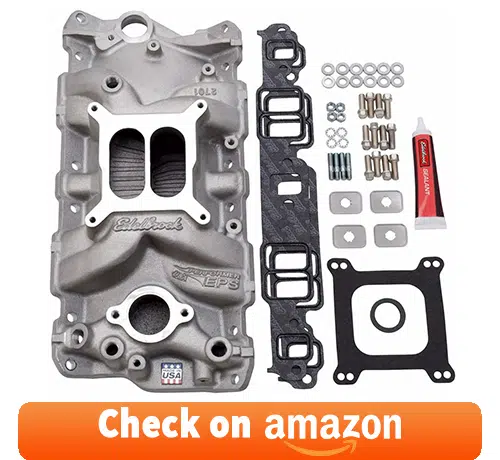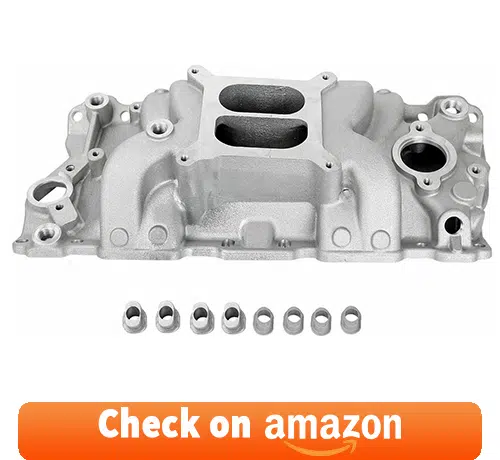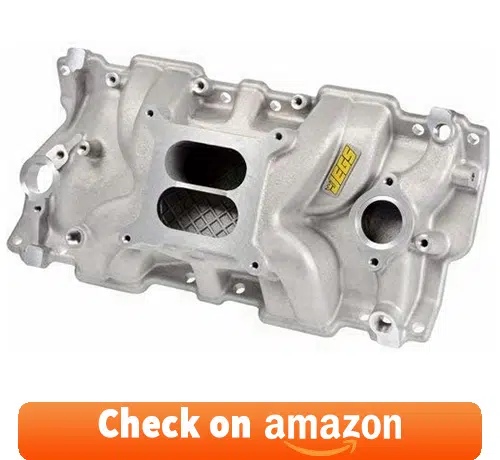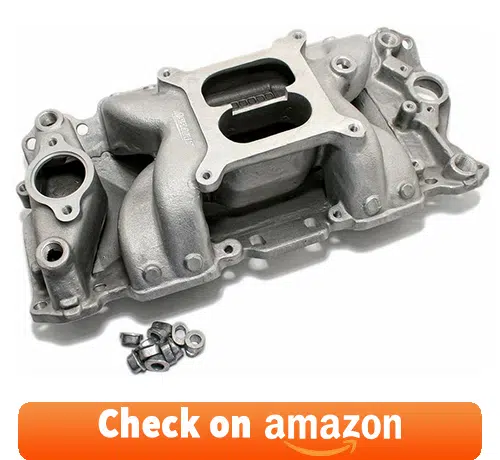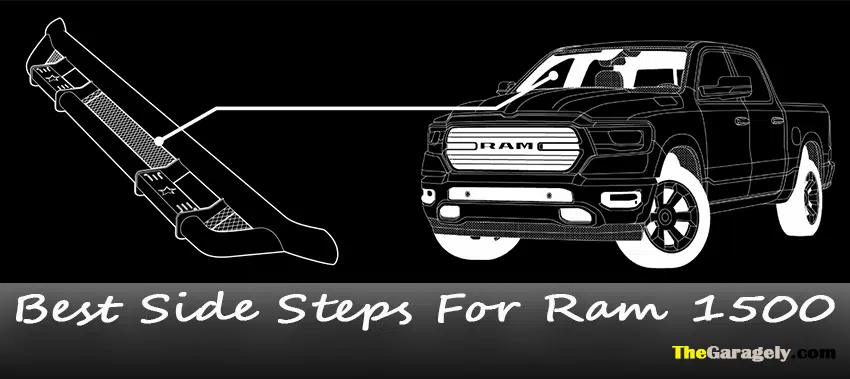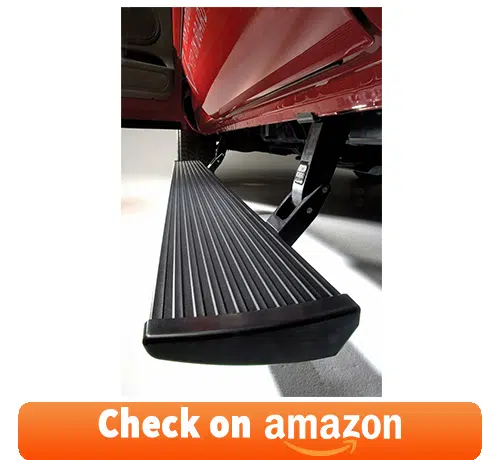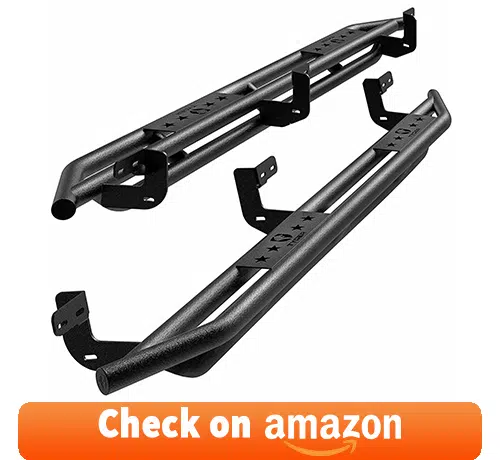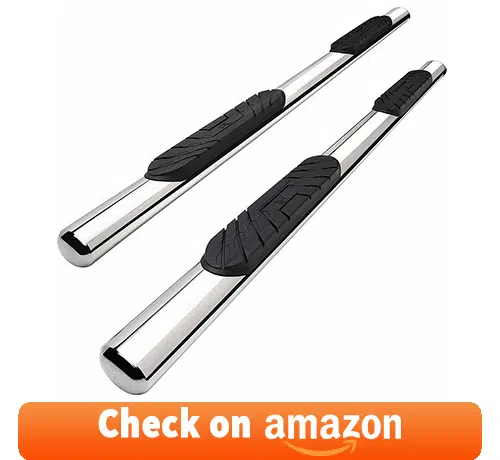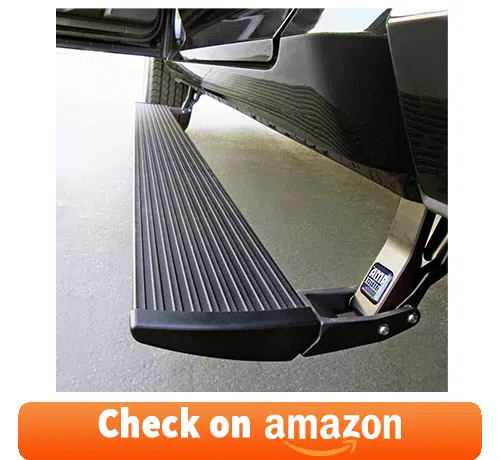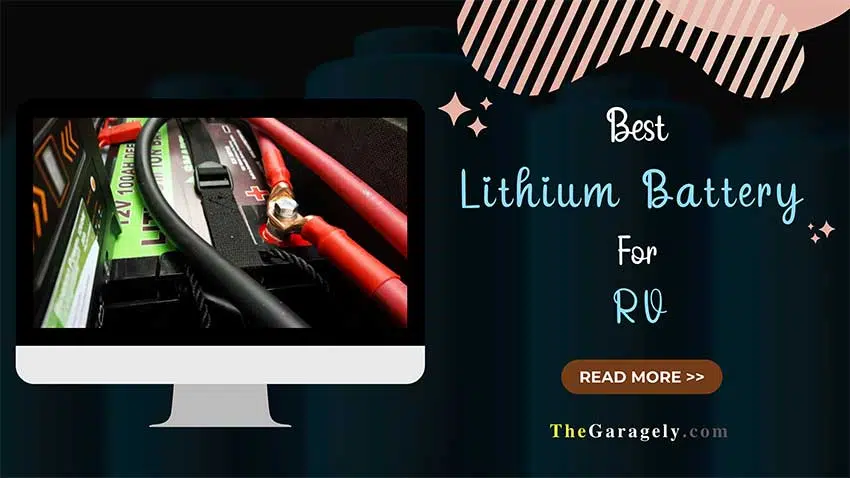
A battery is the beating heart of a car, isn’t it? Though lithium batteries are expensive, most RV owners prefer them for their premium service. The best part is we dig deeper to introduce the Best Lithium Battery For RV before you.
Every single buck you spend on a lithium battery is worth it. Their lifespan is also freaking great. But it’s a bit difficult to find out the best battery for your vehicle.
However, we have chosen 5 top-notch lithium batteries for RV to ease your burden. But let’s probe into the types of lithium batteries first.
Types Of Lithium Battery
There are different kinds of lithium-ion batteries, and not all are the same. Here are six different types of lithium-ion batteries.
Iron Phosphate Lithium (LFP)
These batteries are suitable for long-term storage due to their high thermal stability and chemical performance.
Putting four LFP battery cells in series is the easiest technique to make a 12.8-volt battery. LFP batteries are used to replace deep-cycle lead-acid batteries.
Lithium cobalt oxide (LCO)
The power density of lithium cobalt oxide batteries is high, but their specific power is low. It means they don’t work well under high loads but can keep exerting power for a long time.
This battery works on portable electronics such as cell phones, laptops, tablets, and cameras. But other lithium batteries are becoming more popular because cobalt is expensive, and there are safety concerns.
Nickel manganese cobalt oxide
In lithium nickel manganese cobalt oxide (NMC) batteries, the three most essential cathode elements – nickel, cobalt, and manganese – work together to maximize power. The specific energy of nickel is relatively high, yet it is unstable.
However, despite manganese’s high degree of stability, it has low energy. When combined, you get a chemical compound with high power energy.
You can use these kinds of batteries in a wide range of power tools such as e-bikes, scooters, motors, and certain electric cars.
Lithium Manganese Oxide
The cathode of lithium manganese oxide (LMO) batteries is lithium manganese oxide. This chemical process makes a three-dimensional structure that improves the flow of ions, lowers internal resistance, increases the amount of current it can handle, and makes it safer and more stable at high temperatures.
You can find these LMO batteries in portable power tools, medical devices, and some hybrid and electric vehicles.
Aluminium Nickel Cobalt Oxide
Lithium nickel cobalt aluminum oxide (NCA) batteries have a long lifespan, high energy, and good specific power. Thus, they have the ability to provide an adequate amount of current for a long period of time.
NCA batteries are popular in the electric car industry because they can handle high loads and last longer than other types of batteries.
Lithium Titanate
The chemistry of the cathode material is different in each of the lithium batteries we’ve discussed so far. In the anode, LTO batteries replace graphite with lithium titanate and utilize LMO or NMC for the cathode.
The battery is very safe, lasts a long time, and charges way more quicker than any other lithium battery.
This technology may be used in various ways, including electric automobiles, charging stations, grid backup, solar street lighting, telecommunications systems, and even aerospace and military equipment.
The 5 Best Lithium Batteries For RV in 2022
As you can easily guess, there is a long list of lithium batteries on the market. But we have researched and chosen the 5 best lithium batteries here. So let’s have a look at our top 5 picks then.
1. Battle Born Batteries LiFePO4 Deep Cycle Battery
Battle Born LifePO4 is one of the best deep cycle batteries for RVs today. Weighing just 31 pounds, it is far more portable than most other versions of the same power.
In addition to being convenient to install and move about, lightweight batteries don’t add any more weight to your car.
Like every other Battle Born battery, this one is not only convenient but also remarkably long-lasting. The battery has a long life expectancy of up to 10 years.
In the event of a malfunction, such as a power or a temperature problem, the device’s built-in safeguards are unique and will keep you safe.
There’s also short-circuit protection on top of all the other safeguards. Battle Born has thoroughly tested the battery. In addition to being safe, non-toxic, and environmentally friendly, the product lasts a long time.
Pros
- Lightweight design makes handling and installation easy.
- You may place the battery in any position as it contains no acid.
- This battery protects against various hazards, such as short circuits, reverse polarity, high or low temperatures, and voltage fluctuations.
Cons
- The price is not so reasonable.
2. Mighty Max Battery 12V 100AH Lithium Battery
Mighty Max 12V 100Ah is an excellent lithium-ion RV battery that is inexpensive, easy, and dependable. Despite its affordable cost, this battery performs as well as more expensive and fancier RV batteries.
The battery’s 2500-cycle lifetime is outstanding for a battery in this price range. The battery’s general design and construction are also unique and made with high-quality materials. Both hot and cold conditions don’t affect the battery’s performance.
Aside from its shape, the battery does not feel heavy or oversized. Changing out your old lead-acid or gel batteries with this one should be a piece of cake.
Additionally, it has a powerful and all-encompassing system for managing the battery. Your battery is safe against overcharging, short circuits, under-charging, deep discharge, and reverse polarity, which may cause harm.
Pros
- The battery is cheap.
- A battery management system prevents overcharge, undercharge, short-circuits, and other concerns to keep you and your car safe.
- This battery has an easy installation process.
Cons
- The battery lacks wiring and mounting hardware.
3. Renogy Li 12V 100Ah Smart Lithium Iron Phosphate Battery
A Renogy Li 12V 100Ah battery is the most reliable and safe option. This sealed deep-cycle battery lasts longer than a regular lead-acid battery.
The battery’s high-quality cells make it function in practically every condition. These cells provide a 4000-cycle battery with 100Ah continuous discharge.
Another advantage is adaptability to varied climates. The battery can operate at -20 C.
The battery also has a battery management system (BMS). This function prevents overcharging, overload, short circuits, undercharging, reverse polarity, and deep discharge.
Due to its strong security measures, there’s no need to worry about being harmed.
Pros
- The waterproof battery works at -20 C.
- The battery is corrosion- and leakage-resistant.
- The battery may survive 4000 cycles and ten years.
Cons
- The battery has no handles.
4. ExpertPower Lithium LiFePO4 Deep Cycle Rechargeable Battery
If you’re an off-grid RV owner seeking a battery to power all of your RV’s appliances, then ExpertPower Lithium LifePO4 is here. Because of its extended lifespan, this battery is ideal for off-grid camping.
Depending on your power requirements, the battery may last anywhere from 2500 to 7000 cycles. Battery life may be up to 10 years, which is far longer than the standard lead-acid battery’s 500 cycles and three-year lifetime.
This lithium LifePO4 battery from ExpertPower proved to be much better for off-grid excursions, making it the best lithium RV battery. The battery’s lightweight construction is another plus. \
It’s lighter than lead-acid and lithium-ion batteries, weighing 12 lbs. These features can’t surpass the battery’s in-built management system (BMS). In addition, it has several safety features.
These protections are against short circuits, reverse polarity, overcharging, overloading, and deep discharging. It means you don’t have to worry about damaging the battery.
Pros
- Long-lasting batteries are perfect for off-grid users.
- It lasts ten years, significantly longer than lead-acid batteries.
- Lightweight and maneuverable design.
- This battery has overload, overcharge, deep discharge, and short-circuit safeguards protection.
Cons
- Poor customer service
5. MMG Lithium Ion Sealed Battery
There is no better option than the MMG lithium-ion sealed battery when it comes to an RV battery that is both affordable and reliable. Batteries like this one are ideal for many vehicles and equipment.
It’s a rechargeable, high-capacity battery that requires no maintenance. The product’s weight is much lower than that of similar-sized and powered alternatives. You don’t have to worry about the battery leaking since it is completely sealed.
You may use the product inside and outdoors with its weather-resistant and sturdy exterior surface. Overall it’s worth the money you get in terms of quality and service.
Pros
- It’s ideal for people who like off-the-grid activities in a tiny car.
- The battery is reasonably priced, long-lasting, and dependable.
- It has plenty of other safeguards in place to keep users secure.
Cons
- The battery is not a good choice for bigger vehicles that need more power.
Benefits Of A Lithium Battery
Lithium-ion batteries have benefits over lithium and other technologies. Here are some of the advantages of using them.
Variety
Several lithium-ion battery types are well-suited for consumer electrical gadgets due to their high current density. However, other kinds of batteries provide more current, making them ideal for power equipment and electric vehicles.
Longevity in Performance
Lithium-ion technology is the best option for applications that need a lot of power. When compared to nickel-based batteries, they provide a higher current. Three times more powerful than their nickel counterparts, they can provide 3.6 Volts.
Easy to Maintain
Lithium-ion batteries are easier to use than nickel-based batteries and need less maintenance. No equipment is necessary to get them started, and they don’t need to be cycled on a schedule to keep their batteries alive.
In addition, lithium-ion batteries have no memory effect, which reduces capacity after repeated partial discharge and charge cycles.
Environmental
It is common knowledge that cadmium, lead, and mercury have always been in the production of batteries; nevertheless, it is also common knowledge that prolonged exposure to these metals may be harmful to humans, animals, and plants.
Even though Li-ion batteries are safer than many other kinds, they still need to be recycled correctly, so don’t throw away used batteries with your regular trash.
How Long Will Rv Lithium Batteries Last?
Lithium RV batteries last longer than any other kind and don’t need maintenance. When compared to a lead-acid battery, a lithium-ion battery has a useful life expectancy of 10-40 times more significant.
Many people will experience 5000 useable deep full discharges and thousands of more cycles with lesser usage than the recommended amount. It would mean at least two decades of use in a recreational vehicle.
Lithium-ion batteries are sealed batteries that work in a way that is similar to how lead-acid batteries work. Lithium iron phosphate replaces lead and acid in lithium-ion RV batteries.
In contrast to the lithium-ion batteries seen in smartphones and laptops, LifePO4 lithium-ion batteries are less sensitive to overheating and chemical reactions.
Read More: How Long Will a Winch Run on a Battery?
Who Makes The Best Lithium Battery?
Many different RV lithium batteries are available, each with a varied quality performance and durability. And the vast majority of consumers stick to well-known brands when shopping for batteries. Here you’ll find a list of some of the most famous and respected companies.
Lithium batteries from Battle Born, Renogy, ExpertPower, and Mighty Max are among the best RV battery. Reliability and adaptability are well-known attributes of these goods.
Are All Lithium Rv Batteries The Same?
Lead-acid batteries and lithium batteries work in the same way, but the materials are different. There are a variety of lithium-ion batteries that you can use for a variety of purposes. Lithium Iron Phosphate (LiFePO4) is the most common form of lithium battery used in RVs.
And it is currently the best choice for RVs (LiFePO4). LiFePO4 batteries are among the safest on the market. It charges rapidly, discharges consistently, and stores nearly all of its energy.
How Much Do Rv Lithium Batteries Cost?
Different lithium batteries have other costs since they are not all similar. The most basic ones-those used to power remote controls are usually the least expensive on the market.
Prices will be higher if we seek a lithium battery with a more significant number of amp-hour or output voltage (V).
You should also keep in mind that sure lithium batteries are general and will work with any device, regardless of brand, if the technical specifications allow it. Others, however, are of exclusive use, with more particular, complicated, and unique features.
Read More: Why does RV Lithium Battery Cost More Than The Other Batteries?
Are Lithium Batteries Better For Rvs?
Traditional lead-acid batteries are heavier, less efficient, and less powerful than lithium batteries. Even though they cost more, they last a lot longer and save you money in the long run.
Lithium RV batteries are the best choice for most RVers because of all of these things.
Best Lithium Battery For RV [Important FAQs]
Conclusion
Well, we have given you a better glimpse of the whole picture. Lithium-ion batteries provide power sources for lengthy periods and numerous deep cycles. When it comes to storing energy, these batteries are the best for cars.
When searching for a lithium battery, keep in mind that not all of them are made equal. If you’re a beginner or don’t know your way around, you may find yourself in a tight spot.
But if you choose any of the batteries above, it will be a win-win situation. Now, it’s time to choose, buddy.
